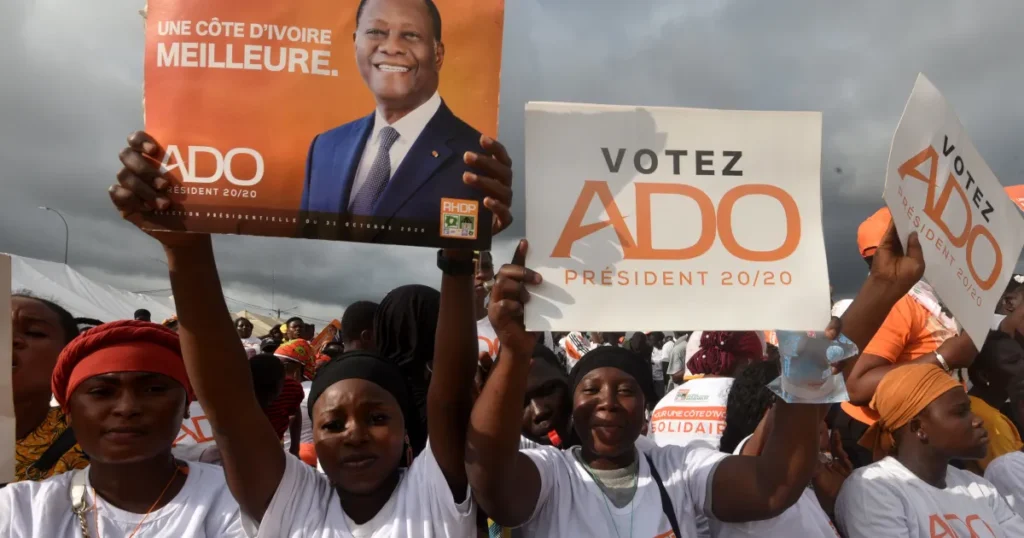Ivory Coast’s political climate has grown increasingly tense as the country’s two main opposition parties announced plans for daily protests ahead of the October 25 presidential election. The move follows the government’s decision to bar key opposition figures, including ex-president Laurent Gbagbo and Tidjane Thiam, from contesting the poll.
At a banned opposition march held in Abidjan on Saturday, security forces reportedly dispersed crowds using tear gas, with 237 people arrested, according to Interior Minister Vagondo Diomande. Opposition leaders have condemned what they describe as “brutal repression” and vowed to continue peaceful demonstrations across the nation.
The government had earlier this month issued a sweeping ban on political rallies and protests, a move that critics say undermines democracy. In a joint statement released on Sunday, the Common Front an alliance of the two leading opposition parties declared that the demonstrations would continue “every day across the country until demands for political dialogue are met.”
Both Gbagbo’s and Thiam’s parties have reported numerous injuries among their supporters during Saturday’s clashes. They reaffirmed their determination to resist intimidation, insisting that the protests are a fight for justice, democracy, and peace.
President Alassane Ouattara, 83, is seeking a fourth term in office, a decision that has sparked widespread criticism and fears of renewed instability in the West African nation. With Gbagbo and Thiam barred, the remaining candidates include Jean-Louis Billon, Ahoua Don Mello, Simone Ehivet Gbagbo (former first lady), and Henriette Lagou, who previously ran in 2015.
As tensions rise, observers warn that the coming weeks could prove decisive for Ivory Coast’s democratic future, with the opposition pushing for inclusion and the government determined to maintain control.

